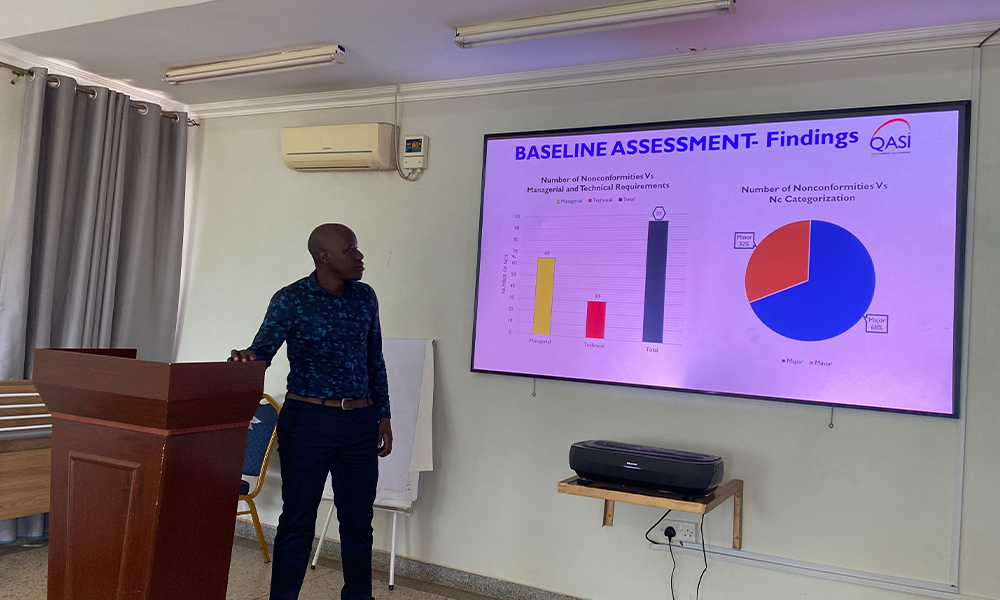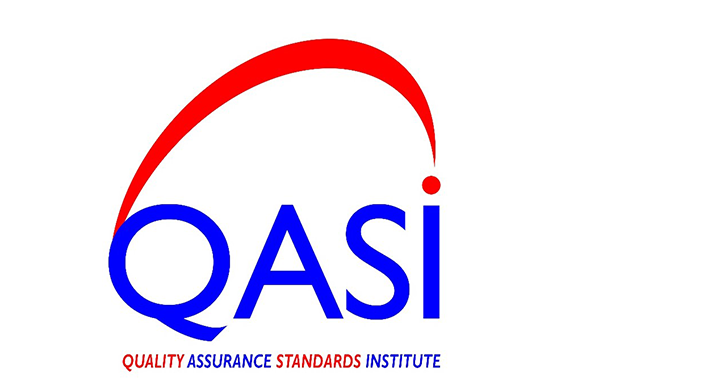ISO 22000 Food Safety Management System (FSMS)

ISO 22000 is an internationally recognized standard that provides a framework for food safety management systems (FSMS). It is designed to help organizations in the food industry ensure the safety of their products throughout the entire food chain, from farm to fork.
ISO 22000 is an internationally recognized standard that provides requirements for a food safety management system (FSMS). It’s designed to help organizations in the food industry ensure the safety of their products throughout the entire food chain, from farm to fork.
Key aspects of ISO 22000 include:
- Hazard analysis and critical control points (HACCP): A systematic approach to identifying and controlling potential food safety hazards.
- Prerequisite programs (PRPs): Basic conditions necessary for food safety, such as good hygiene practices and pest control.
- Operational controls: Measures to ensure that food safety plans are effectively implemented and maintained.
- Management systems: Requirements for the management of the FSMS, including planning, implementation, operation, maintenance, and continuous improvement.
By implementing an ISO 22000-compliant FSMS, organizations can demonstrate their commitment to food safety, reduce the risk of foodborne illnesses, and improve their overall business performance
ISO 22000 Food Safety Management System (FSMS) is important for several reasons:
- Consumer Protection: It helps ensure the safety of food products, protecting consumers from foodborne illnesses and ensuring their well-being.
- Regulatory Compliance: ISO 22000 is often recognized by regulatory bodies as a benchmark for food safety management. Compliance can help organizations avoid fines, penalties, and legal issues.
- Enhanced Market Access: Many countries and retailers require suppliers to have an ISO 22000-certified FSMS to do business with them. This can open up new markets and increase sales opportunities.
- Brand Protection: A strong food safety reputation can enhance a brand’s image and trust among consumers.
- Risk Mitigation: ISO 22000 helps organizations identify and manage potential food safety risks, reducing the likelihood of foodborne outbreaks and recalls.
- Operational Efficiency: Implementing an FSMS can streamline processes, improve efficiency, and reduce waste.
- Cost Savings: By preventing foodborne illnesses and recalls, organizations can avoid costly legal actions and product recalls.
- Continuous Improvement: ISO 22000 provides a framework for organizations to continuously improve their food safety practices and identify areas for enhancement
- Enhanced food safety: Ensure the safety of your food products and protect public health.
- Improved regulatory compliance: Meet the requirements of various food safety regulations and standards.
- Increased customer confidence: Build trust with consumers by demonstrating your commitment to food safety.
- Enhanced market access: Gain access to new markets and customers by demonstrating compliance with international food safety standards.
- Reduced risk of foodborne illnesses: Prevent outbreaks of foodborne illnesses and protect your organization’s reputation.
- Improved operational efficiency: Streamline food safety processes and reduce waste.
- Cost savings: Avoid costly recalls and legal actions related to food safety incidents.
QASI is excited to support you, contact us to begin with the first step!
Explore our courses and find the perfect fit for your needs.
- ISO 22000 Implementers’ course
- ISO 22000 Auditors’ course based on ISO 19011
- ISO 22000 and ISO 31000 based Risk Management course
The ISO 22000 FSMS training course is suitable for individuals working in the food industry, including:
- Food manufacturers
- Food processors
- Food retailers
- Food service providers
- Regulatory authorities
- Quality assurance professionals
- Food safety consultants
By attending this course, you can gain the knowledge and skills necessary to implement an effective FSMS and contribute to the safety of the global food supply.
Training Days for each course: 5
Exam Duration: 1 hour
Retake Exam: Yes
For additional information, please contact info@qasi.co.ug
ISO 22000 Implementers’ course
ABOUT THIS COURSE
Course Description
- The ISO 22000 Implementers’ course is designed to equip individuals with the knowledge and skills necessary to establish, implement, maintain, and continually improve a food safety management system (FSMS) that conforms to the ISO 22000 standard. ISO 22000 provides a framework for organizations in the food industry to ensure the safety of their products throughout the entire food chain.
Key topics covered in the course include:
- Understanding ISO 22000: A comprehensive overview of the ISO 22000 standard, including its scope, objectives, and key requirements.
- Hazard analysis and critical control points (HACCP): Implementing a HACCP system to identify and control potential food safety hazards.
- Prerequisite programs (PRPs): Establishing and maintaining PRPs to support the overall safety of the food production process.
Verification and validation: Verifying the effectiveness of the FSMS and validating the HACCP plan..
Course objectives:
Participants will be able to:
- Establish and implement an FSMS that meets the requirements of ISO 22000.
- Conduct internal audits of the FSMS.
- Identify and address food safety risks.
- Continuously improve the FSMS to enhance food safety and quality.
Certification
Participants get certificate of successful course completion awarded at the end of the training.
Minimum requirements for certification will include: 95% attendance of the sessions and at least 70% in the post-test. Participants who fail to meet the criteria above get a certificate of participation.
Resource Material
- ISO 22000
- ISO 9001
Who Should Attend:
Participants include:
- Food manufacturers
- Food processors
- Food retailers
- Food service providers
- Quality assurance professionals
- Regulatory affairs professionals
Course Prerequisites
- Food safety principles: A general understanding of food safety concepts, including hazard analysis, critical control points, and prerequisite programs.
- Quality management systems: Familiarity with the structure and operation of quality management systems.
- Food production processes: Knowledge of common food production processes and terminology.
- Regulatory requirements: Awareness of relevant food safety regulations and standards
.
ISO 22000 Auditors’ course based on ISO 19011
ABOUT THIS COURSE
Course Description
- The ISO 22000 Auditors’ course, based on the ISO 19011 standard, is designed to equip individuals with the knowledge, skills, and techniques necessary to conduct effective audits of food safety management systems (FSMS) that conform to the ISO 22000 standard. ISO 22000 provides a framework for organizations in the food industry to ensure the safety of their products throughout the entire food chain.
Key topics covered in the course include:
- ISO 22000 requirements: A comprehensive understanding of the key principles, clauses, and requirements of the ISO 22000 standard for FSMS.
ISO 19011 auditing principles: The fundamental principles and techniques for conducting effective audits, as outlined in the ISO 19011 standard.
Course objectives:
Participants will be able to:
- Conduct effective audits of FSMS that conform to ISO 22000.
- Identify nonconformities and recommend corrective actions.
- Evaluate the effectiveness of FSMS.
Contribute to the continuous improvement of food safety within organizations.
Certification
Participants get certificate of successful course completion awarded at the end of the training.
Minimum requirements for certification will include: 95% attendance of the sessions and at least 70% in the post-test. Participants who fail to meet the criteria above get a certificate of participation.
Resource Material
- ISO 22000
- ISO 9001
- ISO 1901
Who Should Attend:
Participants include:
- Food manufacturers
- Internal auditors
- External auditors
- Food processors
- Food retailers
- Food service providers
- Quality assurance professionals
- Regulatory affairs professionals
Course Prerequisites
- ISO 22000: A general knowledge of the key principles, clauses, and requirements of the ISO 22000 standard for food safety management systems (FSMS).
- ISO 19011: Familiarity with the principles and techniques for conducting audits, as outlined in the ISO 19011 standard.
- Food safety: A basic understanding of food safety concepts, including hazard analysis, critical control points (HACCP), and prerequisite programs (PRPs).
- Quality management systems: Knowledge of quality management systems and their principles.
- Auditing concepts: Familiarity with auditing principles, such as evidence collection, objective evaluation, and reporting
ISO 22000 and ISO 31000 based Risk Management course
ABOUT THIS COURSE
Course Description
- The ISO 22000 and ISO 31000-Based Risk Management course is designed to equip individuals with the knowledge and skills necessary to effectively manage risks within the food industry, combining the requirements of both ISO 22000 (food safety management) and ISO 31000 (risk management).
Key topics covered in the course include:
- ISO 22000 and ISO 31000 requirements: Understanding the key principles and requirements of both ISO 22000 and ISO 31000, as they relate to risk management in the food industry.
- Risk identification and assessment: Identifying and assessing food safety risks using methods such as hazard analysis and critical control points (HACCP) and risk assessment techniques from ISO 31000.
- Risk evaluation and prioritization: Evaluating the significance of identified risks and determining appropriate response strategies.
- Risk treatment options: Exploring various approaches to treating risks, including avoidance, reduction, transfer, and acceptance.
Risk communication and stakeholder engagement: Effectively communicating risk information to stakeholders, including consumers, regulators, and suppliers.
Course objectives:
Participants will be able to:
- Effectively identify and manage food safety risks using a combined ISO 22000 and ISO 31000 approach.
- Develop and implement risk management strategies tailored to the food industry.
- Communicate risk information effectively to stakeholders.
- Contribute to the continuous improvement of food safety management systems
Certification
Participants get certificate of successful course completion awarded at the end of the training.
Minimum requirements for certification will include: 95% attendance of the sessions and at least 70% in the post-test. Participants who fail to meet the criteria above get a certificate of participation.
Resource Material
- ISO 22000
- ISO 31000
Who Should Attend:
Participants include:
- Food safety managers
- Risk managers
- Quality managers
- Regulatory affairs professionals
- Consultants
Course Prerequisites
- ISO 22000: A general knowledge of the key principles, clauses, and requirements of the ISO 22000 standard for food safety management systems (FSMS).
- ISO 31000: Familiarity with the principles and techniques for risk management as outlined in the ISO 31000 standard.
- Food safety: A basic understanding of food safety concepts, including hazard analysis, critical control points (HACCP), and prerequisite programs (PRPs).
- Risk management: Knowledge of risk management principles, such as risk identification, assessment, evaluation, and treatment.
- Quality management systems: Familiarity with the structure and operation of quality management systems
Who should attend?
The ISO 22000 FSMS training course is suitable for individuals working in the food industry, including:
- Food manufacturers
- Food processors
- Food retailers
- Food service providers
- Regulatory authorities
- Quality assurance professionals
- Food safety consultants
By attending this course, you can gain the knowledge and skills necessary to implement an effective FSMS and contribute to the safety of the global food supply.
Other Information
Training Days for each course: 5
Exam Duration: 1 hour
Retake Exam: Yes
For additional information, please contact info@qasi.co.ug







